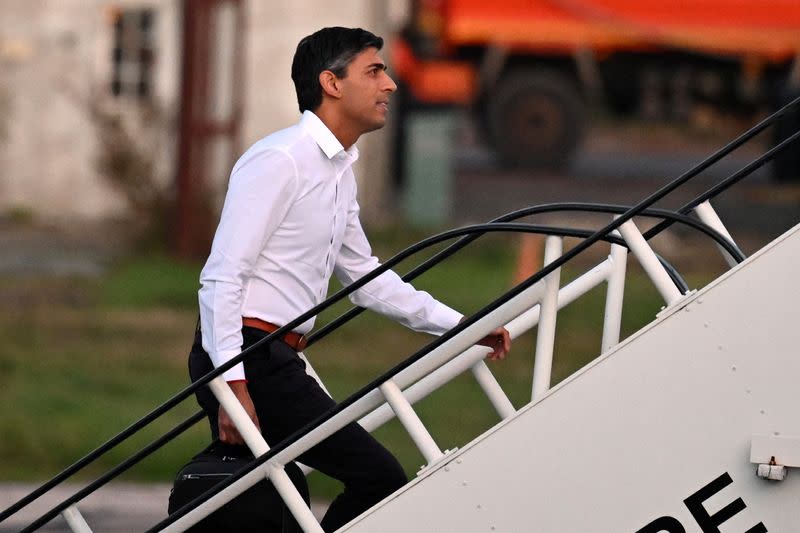Britain to urge G20 to take coordinated action on economic instability
By Leika Kihara and Stanley Widianto
NUSA DUA, Indonesia (Reuters) - British Prime Minister Rishi Sunak will call on the Group of 20 (G20) for coordinated action to address international economic instability and the rising cost of living in the wake of Russia's invasion of Ukraine, his government said on Monday.
Sunak is due to attend a G20 summit on the Indonesian island of Bali on Tuesday.
"Every household on the planet is feeling the impact of Putin's war," the British government said in a statement issued by its embassy in Indonesia, referring to Russian President Vladimir Putin and pointing to sky-rocketing energy bills that are weighing on global growth.
"This year, the world is looking to the G20 again to ensure the stability of international markets and alleviate the burden on the world's poorest people," it said in the statement that was issued after Sunak arrived in Indonesia.
Tension between Western economies and Russia have this year overshadowed the G20, a forum initially created to discuss global economic issues, and have prevented the group's ministers from issuing joint communiques.
"The prime minister will use the G20 as an opportunity to call out Putin's barbarism and force Russia to confront the global suffering caused by this senseless campaign of violence," Britain said.
Sunak would urge fellow G20 leaders to offer direct government support targeting the most vulnerable, strengthen energy security and take "rapid action" to help poor countries better manage debt burdens, it said.
(Reporting by Leika Kihara and Stanley Widianto; Editing by Christopher Cushing, Robert Birsel)

 Yahoo Finance
Yahoo Finance 

